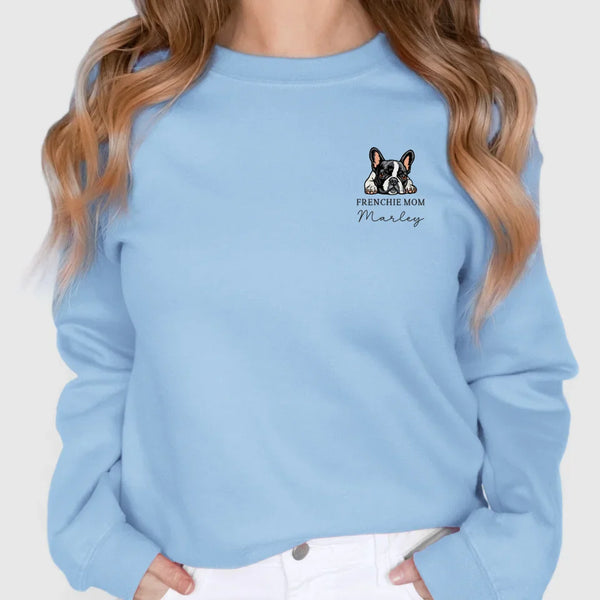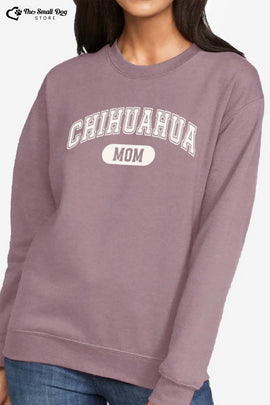Pet Allergies: Are French Bulldogs Hypoallergenic?
Posted by ROBERTO BURALLI

For anyone considering a French Bulldog as a pet, a typical query that arises is whether they are hypoallergenic. This is a valid concern as Frenchies are incredibly cute dogs and are currently among the most sought-after breeds in the US. Moreover, a significant number of people, ranging between 10 to 20%, have some form of pet allergies. Therefore, several individuals are inquiring about the compatibility of French bulldogs with allergy sufferers.
Are French Bulldogs Hypoallergenic?
The buzzword “hypoallergenic” is often associated with certain dog breeds. But what does it mean? Let’s debunk a common misconception: no dog breed is completely hypoallergenic. However, some breeds may be more suitable for individuals with allergies. French Bulldogs, unfortunately, are not considered hypoallergenic.
Frenchies’ coats produce dander that can trigger allergic reactions in susceptible individuals. That being said, there are steps one can take to reduce exposure to allergens and make it easier to enjoy time with their French Bulldog.
In this article, we will talk about what is behind pet allergies, common allergens with French Bulldogs, and tips to minimize one’s exposure.
What Does Hypoallergenic Mean?
Hypoallergenic is a term often associated with dog breeds that are less likely to cause allergic reactions in humans. People with allergies are typically sensitive to allergens such as dander, saliva, and urine produced by pets. Hypoallergenic breeds are thought to produce fewer of these allergens or have coats that trap the allergens, reducing their impact on allergy sufferers.
Are French Bulldogs Bad for Allergy Sufferers?
Pet allergies are caused by a reaction to proteins found in the saliva, dander (skin flakes), urine, or fur of an animal. Inhaling these proteins can cause allergic reactions such as sneezing, coughing, itchy eyes, and watery eyes. The severity of the reaction will vary from person to person.
When it comes to French Bulldogs, their short coat and dander can still trigger allergic reactions just like any other breed. That’s why it’s important to take steps to reduce your exposure if you suffer from allergies.
Related Post: Unveiling the Rare and Irresistible Long-Haired French Bulldog

Understanding Allergens in French Bulldogs
Dander: The primary allergen
Dander, which consists of tiny flecks of skin shed by animals, is the primary allergen responsible for allergic reactions in humans.
Saliva and urine: Additional sources of allergens
Apart from dander, allergens can also be found in a dog’s saliva and urine. When a French Bulldog licks itself, allergens from its saliva can be transferred to its fur. Additionally, proteins found in urine can also trigger allergic reactions in susceptible individuals.

What Are Some Allergy Prevention Tips for Owning a French Bulldog?
To reduce allergens and maintain the health of your household, there are ways to manage allergies if you choose to adopt a French Bulldog, even though they may not be hypoallergenic.
Here are a few tips for preventing allergic reactions:
Regular grooming and cleaning routines
While French Bulldogs may not be hypoallergenic, there are steps one can take to minimize the impact of allergens. Regular grooming is crucial in reducing the amount of loose hair and dander in one’s home. Brushing your Dog’s coat frequently helps to remove loose hair and minimize the spread of allergens.
Maintaining a clean living environment
To create a hypoallergenic-friendly space, it’s important to keep your living environment clean and free from allergens. Vacuuming regularly with a high-efficiency particulate air (HEPA) filter vacuum cleaner can help eliminate pet dander and other airborne allergens. Click here to see our favorite vacuum cleaner.
Wash the dog’s bedding and toys frequently
To prevent allergens from spreading, it’s advisable to wash your French Bulldog’s bedding and toys frequently. This will reduce the buildup of dander on these items. Additionally, it’s a good idea to have a designated area for your dog’s belongings so they are not spread throughout the home.
Air Purifiers and Allergen Control
Investing in a good quality air purifier can help filter out allergens from the air, reducing the risk of allergic reactions. Furthermore, consider using allergen control products, such as hypoallergenic sprays, to neutralize allergens on surfaces where your Frenchie spends most of their time. Click here to see our favorite air purifier.
Restrict your dog’s access to certain areas of the house.
To minimize allergic reactions to French Bulldogs, it’s important to limit their presence in your living space. Make sure to avoid allowing them in enclosed spaces, such as bedrooms, that are frequently used by people with allergies.
Consultation with an allergist
If you have known allergies and are considering getting a French Bulldog, it is recommended to consult with an allergist. They can conduct specific tests to determine the severity of your allergies and advise you on the best course of action. They may also recommend medications or other strategies to manage your symptoms effectively
By following these tips, you can minimize the allergens in your home and keep everyone healthy! With a little bit of extra care and attention, you can ensure that owning a French Bulldog is an enjoyable experience for all.
Related Post: The Best Clothes For French Bulldogs
Is There a Completely Hypoallergenic Dog?
Many people dream of finding a completely hypoallergenic dog, one that won’t cause any allergic reactions whatsoever. But the truth is, there is no holy grail of hypoallergenic canines. All dog breeds produce allergens to some extent.
However, some breeds may be better tolerated by allergy sufferers due to their lower allergenic properties. If you have allergies but still want a furry companion, consider exploring breeds like poodles, Bichon Frises, or Portuguese Water Dogs, which are often recommended for individuals with allergies.
Alternative Hypoallergenic Dog Breeds
If you have severe allergies and are unable to manage them with a French Bulldog, here are some hypoallergenic dog breeds worth considering:
- Poodle: Poodles are known for their hypoallergenic coats and come in various sizes, making them suitable for different living arrangements.
- Bichon Frise: These small, fluffy dogs have hair rather than fur, which significantly reduces shedding and allergen production.
- Maltese: Maltese dogs have a silky, hypoallergenic coat that requires regular grooming to prevent matting.
- Portuguese Water Dog: This intelligent and active breed is hypoallergenic, making it a great choice for individuals with allergies.
Conclusion
In conclusion, while French Bulldogs are not hypoallergenic, there are measures you can take to minimize allergic reactions if you decide to bring one into your home. Regular grooming, maintaining a clean living environment, and using allergen control products are essential for managing allergies.
However, if allergies are severe, considering a hypoallergenic dog breed might be a more suitable option. Remember to consult with your allergist or healthcare provider before making any decisions.
With the information provided in this comprehensive guide, we hope you can make an informed choice regarding hypoallergenic French Bulldogs. Remember, thorough research and preparation are key when welcoming a furry friend into your family.
TAGS:
SHARE:
















